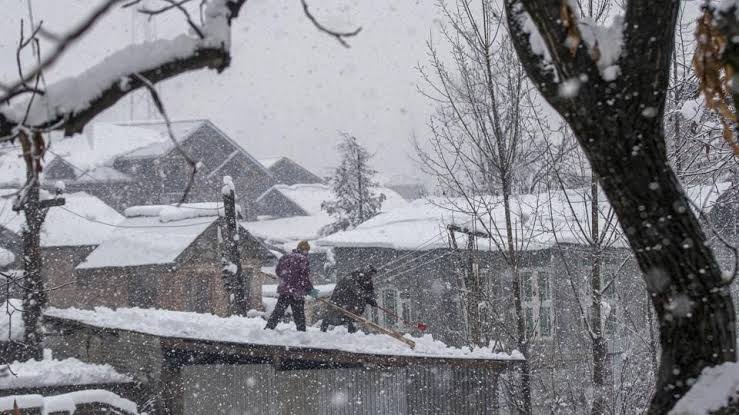Srinagar: With fresh bout of snowfall in Kashmir valley, Doctors urged people to be careful while clearing snow from their driveways, porches or sidewalks.
“Shoveling snow can increase your risk of having a heart attack,” they said.
Lifting heavy snow causes sudden increase in blood pressure and heart rate that puts more strain on the heart.
“Combine this with icy temperatures which cause arteries to constrict and decrease blood supply, you have a perfect storm for a heart attack.”
People at greatest risk are those who are habitually sedentary with known or suspected heart disease, who go out once a year to clear the snow
“Those with heart issues should not shovel snow at all.”
“Even people without cardiovascular issues have to be careful when they do it because heart attacks with snow shoveling were observed among people with no cardiovascular risk factors such as smoking, high blood pressure, and elevated cholesterol,” cautioned doctors.
Six Ways To Prevent Heart Attacks While Snow Shoveling
- Don’t shovel first thing in the morning. Most heart attacks occur first thing in the morning, when your blood is most likely to clot. Give yourself time to get up and moving before going out and grabbing the shovel. You’ll also give the sun a chance to warm up things a bit.
- Warm up before shoveling. Shoveling snow is exercise. It’s hard work. Take a few minutes before to stretch, move about and get the ‘blood flowing’ before undertaking any strenuous activity, including shoveling snow.
- Use a smaller shovel. A shovel full of wet snow is especially heavy when the shovel is big. It may take a little longer, but many small loads will be better than fewer heavy ones.
- Dress appropriately. Cover your hands, head and mouth. Covering your mouth with a scarf will help you inhale warmer air and can help avoid respiratory problems.
- Shovel in shifts. If you need a rest, take a rest. Taking 15 minute breaks can help lessen the load on your heart.
- Watch for warning signs. Tightness in the chest, lightheadedness and dizziness are all signs of a heart attack.











